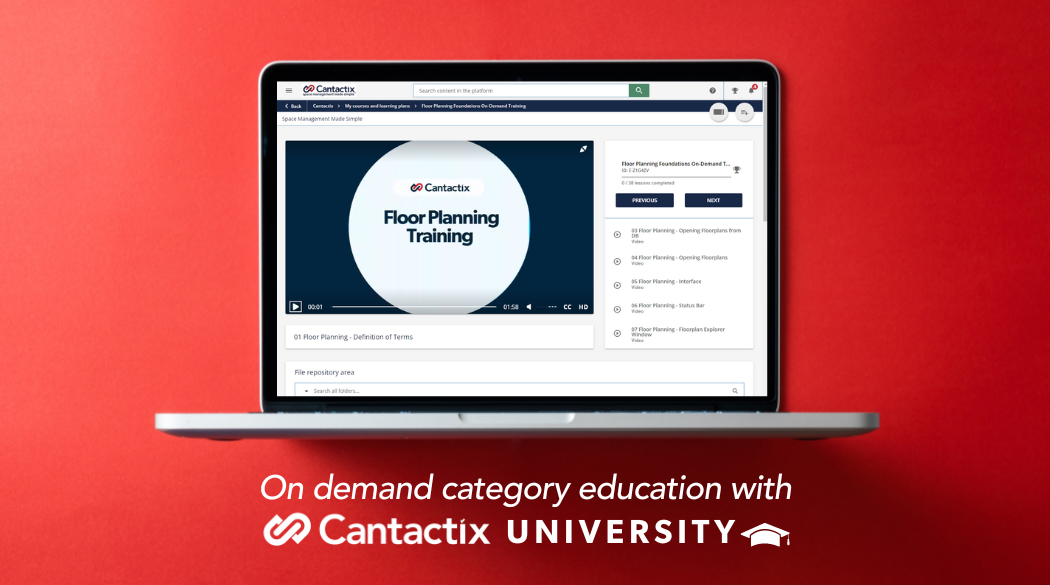Category and Space Management software is a critical tool for companies aiming to improve shelf space, maximize sales, and meet consumer needs efficiently. However, merely investing in the right technology may not be enough to turn the dial. To truly benefit from these tools, organizations must invest in training their employees to use retail space management software effectively. You probably know that education in this area is a key part of building and sustaining a robust Center of Excellence (CoE) within an organization, but what does that actually mean? In this post, we’ll dig into how to embrace various techniques that will help your team learn on their own terms.

First, what is a Center of Excellence (CoE)
It isn’t just another piece of filler corporate jargon. A Center of Excellence is the hub for knowledge, best practices, and innovation, particularly in critical areas like category management, supply chain efficiency, and customer satisfaction. Why invest in time-saving software if your team doesn’t use it? By investing in tools to help your team effectively utilize the resources at their disposal, organizations can ensure that their CoE stays at the forefront of operational excellence. Consider how your tools and their use tie into your overarching goals and ROI expectations. Your CoE is not just a hub, but a driving force in achieving your organizational goals.
Below are five critical elements of a strong Center of Excellence, focusing on how software education and embracing new technologies can enhance organizational performance.
1. Comprehensive Software Training
The foundation of any effective CoE is a team of skilled professionals well-versed in the tools necessary for success. Investing in ongoing education and training for specialized space management software is crucial. Such software solutions are essential for analyzing sales data, understanding customer preferences, and, most importantly, optimizing shelf space. However, even the most sophisticated tools can fall short of their potential and expectations without the right knowledge.
By offering comprehensive software training, organizations equip employees with the skills they need to make data-driven decisions, improve product placement, and create visually appealing displays that drive sales. More importantly, continuous education ensures that employees stay updated on the latest software enhancements, reflecting the dynamic nature of the field and the need for ongoing learning. This leads to better execution and more efficient operations. The opportunity to have a trusted source of real-time education via a knowledge base, on-demand videos, or even live support further enhances the growth and confidence of an organization.
Our team recently participated in a leadership workshop that was open to all members of our organization. We explored strategies to lead effectively through projects and initiatives, emphasizing collaboration and influence rather than traditional hierarchical structures. This training enabled us to enhance our ability to guide teams internally and externally with an open approach to leadership.

2. Embracing New Technologies to Improve Performance
The retail landscape is constantly evolving, with new technologies emerging that can further enhance category and space management efforts. From AI-driven analytics tools to augmented reality solutions for virtual store planning, embracing these innovations is critical for staying ahead of the competition. A strong CoE implements these technologies and fosters a learning culture where employees are encouraged to experiment with new tools and processes. We’ve seen success when organizations make it a competition and “gamify” learning, which can increase buy-in and create a stronger urge for personal improvement and software competency. Our organization has been successful in this approach by making cybersecurity more fun…as fun as you can make catching phishing emails can be, but you get the point!
By integrating new technologies into your strategy, you can improve performance across various levels, including speed of execution, accuracy in demand forecasting, and responsiveness to customer trends. It’s the employees who are trained to adapt to and master new technologies that can unlock these benefits and help their organization remain agile in the face of change. Their role is integral to the success of the organization.
3. Developing Strategic Thinking
A Center of Excellence is more than just a repository for best practices; it is a hub for strategic decision-making. One of the most important aspects of category management is the ability to think strategically about product assortment, merchandising, and space allocation. Employees who receive in-depth education on their software can better understand the “why” behind their decisions, not just the “how.”
The term “strategic thinking” is often overused and misunderstood. It is defined as “a rational and intentional process that helps people achieve goals by analyzing factors that impact the long-term success of a business, team, or individual.” How can we effectively apply this somewhat abstract concept to enhance the implementation of a better Center of Excellence (CoE)?
Strategic thinking is about setting long-term goals, understanding market trends, and deciphering consumer behavior patterns to make informed decisions that align with the organization’s objectives. Well-trained, confident employees, armed with data-driven insights, play a crucial role in anticipating trends, refining their planning processes, and devising more effective merchandising strategies.

4. Mitigating the Impact of Employee Turnover
Turnover is an inevitable reality in any organization, but its impact can be mitigated by investing in education and cross-training. When employees are well-trained in category and space management software, they are more likely to feel confident in their roles, leading to greater job satisfaction and lower turnover. Additionally, if turnover does occur, having a robust training program in place ensures that new employees can quickly get up to speed.
By creating a culture of learning and knowledge sharing within your CoE, you protect your organization from the negative effects of turnover and ensure that institutional knowledge is retained. When employees leave, they take valuable insights and expertise with them, but a strong plan with a focus on education can bridge this gap, ensuring continuity and minimizing disruptions to operations.
5. Fostering Collaboration Across Departments
A strong Center of Excellence serves as a bridge between various departments, including sales, marketing, supply chain, and operations, fostering a sense of unity and cohesion. A category team’s efforts rely on input from multiple areas of the business, and effective collaboration is crucial for success. Software education plays a pivotal role in this collaboration, as it ensures that all team members are using the same tools and data to make decisions.
By investing in software training across departments, organizations create a common language and set of processes that significantly improve communication and decision-making. This collaborative approach not only improves efficiency but also strengthens the overall effectiveness of the program, making everyone feel more connected and informed.
Investing in software education for employees is essential for strengthening an organization’s outcomes and success. Comprehensive, versatile training empowers employees to use software to its full potential while embracing new technologies keeps the organization competitive. Encouraging strategic thinking, mitigating the impact of turnover, and fostering cross-departmental collaboration are also key elements of a strong Center of Excellence. By focusing on these aspects, organizations can drive operational excellence, boost sales, and deliver a superior customer experience.
A well-supported CoE, supported by continuous learning and innovation, can become the backbone of an organization’s long-term success and sustainability. Interested in learning how you can effectively grow your team’s Blue Yonder Category Management Suite skills? Learn more about how our dedicated education platform, Cantactix University, might be right for your team. Learn more here.





